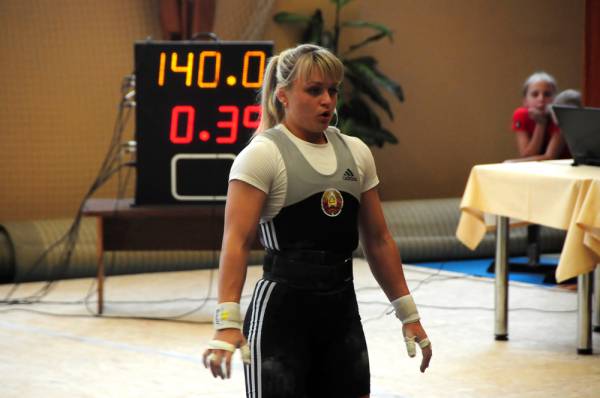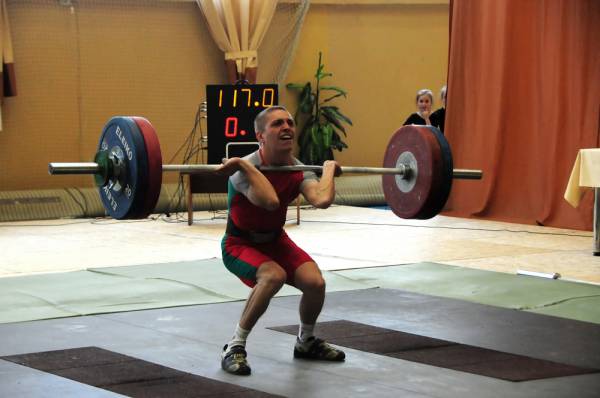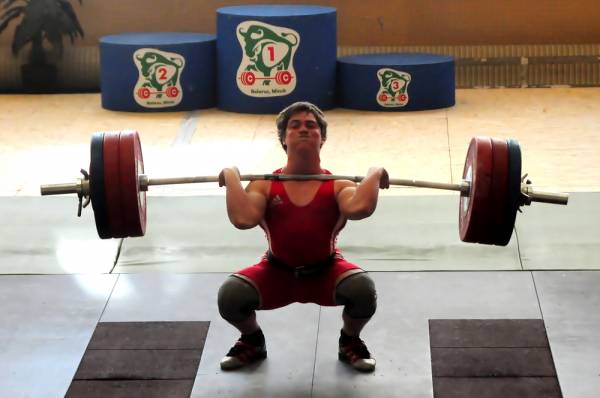There has been a long history of a lack of consumer information in the field of coaching engagement, especially in the sport of weightlifting. At one time, not too long ago, nobody in the United States paid for weightlifting coaching. Weightlifting coaches coached because they were addicted to their role in the sport, and the majority who sought them out were people who wanted to become competitive weightlifters.
Determining a coach’s credentials was pretty much a matter of checking out the results of weightlifting meets and noting whether a given coach’s athletes were making progress toward national and international placings.
The Demands of the Market
The game has changed now that more and more strength and conditioning coaches, athletes, and CrossFitters are anxious to learn the snatch and clean and jerk, and are willing to hire someone to instruct them.
This has created a market, and those rushing into satisfy the needs of the market represent a wide variety of backgrounds and skill levels. Since all of this is relatively new, it has made it all the more difficult to select and engage a qualified coach.
Before we begin I’d like to set the table, so to speak, with some thoughts about coaching and education in America. With a background of 40 years in secondary teaching and 43 years of coaching I feel qualified to present these observations.
In spite of our many excellent universities and the amount of money we spend on K-12 education, as a culture we do not truly appreciate masterful teaching. Whereas other societies display great esteem for teachers, we are running behind in this area. Coaching is or should be a type of teaching and although many coaches have had to master teaching skills, it is not a universally respected aspect of the coaching profession.
Because of these factors and American culture, it is not possible to earn a degree in coaching sports in this country to the extent that it is in a considerable number of countries. Thus there are no respected institutions that provide or grant rigorous licensing of coaches. This means that you are taking chances. The focus of this article, therefore, is to improve your percentages.
Self-Assessment: Who Are You and What Are Looking to Accomplish?
 1. Your Goals: If you are not a lifestyle athlete and are past your prime years you do not need a world-class coach, and in fact that could be a terrible fit. Many high-end coaches are not too skilled at starting off beginners or working with modestly talented individuals.
1. Your Goals: If you are not a lifestyle athlete and are past your prime years you do not need a world-class coach, and in fact that could be a terrible fit. Many high-end coaches are not too skilled at starting off beginners or working with modestly talented individuals.
If you just want to become technically proficient so that your CrossFit workouts are executed with greater proficiency you’re probably best off engaging a coach who specializes in teaching technique to beginners.
If you are a developing athlete who would like to learn the lifts to improve your strength and conditioning, look for someone who is skilled at teaching technique, and understands the competitive athletic experience.
If you want to be a top end weightlifter, you need a coach who is experienced at coaching and managing the competitive career of world class competitors. An important overriding consideration is that you engage a coach who is passionate about the aspect of weightlifting that is your goal.
2. Your Background: If you want to be a great weightlifter there are a number of elements that you should bring to the mix before you even begin. If you lack them, then you will have to learn and/or develop them if possible and that will take time, time that could be put to better use or time that will delay your progression to more rigorous training.
If you have been a competitive athlete, have talent for weightlifting, lived the athletic lifestyle, and are in your early teens, then you are bringing the appropriate elements to the journey. If you haven’t experienced enough as an athlete, then you may have to set more reasonable goals.
In my experience, aside from a lack of talent, the greatest impediment is a failure to comprehend what it means to be an athlete. I know this all sounds somewhat general, but people need to respect the athletic lifestyle and the time needed to acquire the acumen, aplomb and mastery of weightlifting.
So before embarking on your weightlifting journey, choose appropriate goals that are consistent with your background and proposed level of participation.
The Track Record of the Coach
The easiest way to evaluate a coach is to research his or her competitive record. How many athletes has this coached placed at national level competitions? How many athletes has this coach placed on international teams? How long is this record? Have this coach’s athletes ever established national records. All of these items are researchable.
 Unfortunately all of them can be partly falsifiable. Some coaches that head up a team are actually more like CEOs, and the actual coaching is performed by assistant coaches. Some coaches are listed as the actual coach, but only coach the athlete at major competitions. Sometimes athletes switch clubs because they move, and sign up with a coach who is only working with him or her for a short period of time, but is the coach of record.
Unfortunately all of them can be partly falsifiable. Some coaches that head up a team are actually more like CEOs, and the actual coaching is performed by assistant coaches. Some coaches are listed as the actual coach, but only coach the athlete at major competitions. Sometimes athletes switch clubs because they move, and sign up with a coach who is only working with him or her for a short period of time, but is the coach of record.
Most coaches are honorable, however, and their track record is usually very reflective of their skills, but there are the occasional corner cutters that are more administrative than coaching oriented.
I would advise checking the track record of a coach, and then talking to some athletes that he or she has coached. You can find them at competitions and more are willing to converse after they’re done competing. Find out if the coach in question started them from day one, how many days per week he or she is present in the gym, and how many athletes are currently training there.
Formal Credentials
As previously mentioned, there is no licensing of weightlifting coaches in this country. There are over 5,000 USA Weightlifting Level 1 coaches. Some of them are adequate, and some merely passed the exam. Many of them passed the course with the attitude that it is like a Boy Scout merit badge.
There are only about 100 Level 2 coaches. These are usually coaches who are interested in pursuing coaching more seriously and as such are more passionate. There are even fewer Level 3s. This is usually an indication of passion and dedication. Level 4 and Level 5 coaches are small in number and are the ones qualified to coach international teams.
I would say the majority of Level 3 and above coaches are very knowledgeable. The question here is with respect to their pedagogy and coaching skills:
- Formal Education: Some university level background in biology, chemistry, physics, biomechanics, physiology, anatomy and sports psychology is certainly helpful in addition to other credentials, but formal education should not be the sole criterion. There are some coaches in this country from Eastern Europe, Cuba, and Asia who are licensed to coach weightlifting, but they are probably hesitant to do so within the USA Weightlifting infrastructure.
- CSCS: I know that the CSCS is considered the Cadillac of physical training certification, and it can be a sound reinforcing credential, but the coaching skills of a CSCS can vary widely. I personally know of some that know very little about weightlifting. The good thing is they have to have a Bachelor’s degree just to sit for the exam, they’ve passed the scientific foundations portion, and most people don’t earn this one on just a lark.
- Crossfit Oly Cert: The Crossfit Oly Cert represents a formulaic method of teaching the technique of the snatch and clean and jerk to a large group of people. Many people who’ve taken the course can do an adequate job of teaching serviceable technique. But the coaching proficiency of the coaches is somewhat uneven. You could get lucky. This certification does not cover program design, however, so the most you can expect from someone just holding this credential is to be taught proficient technique.
Pedagogy
 The most knowledgeable coach is limited by his or her pedagogical or teaching skills. Teaching a technical lift to great athletes is not that challenging, but it does require some ability to teach skills.
The most knowledgeable coach is limited by his or her pedagogical or teaching skills. Teaching a technical lift to great athletes is not that challenging, but it does require some ability to teach skills.
The best proof of teaching ability is to look over the members of a lifting team as they perform in competition. If they all exhibit sound to exceptional technique, then in all likelihood they were coached by the same person to perform in such a manner. This is the best indicator.
If some team members of a coach are exceptional and others are obviously flawed, then the deciding factor may have been the athleticism of the competitors. One possible factor could be the sports in a coach’s background. If he or she coached a sport with high skill requirements, then skill coaching could be a strong suit.
Conclusion
Your decision as to who should coach you should ultimately be based on a variety of factors as mentioned in this article. Of course, your own goals and specifics should enter into the equation as well. You should look for someone who can deliver the coaching you need most immediately.
Anyone who will provide you with a one size fits all approach is probably lacking in a sufficiently diverse background to solve all of your athletic shortcomings with respect to snatching and cleaning and jerking. Look over a coach’s products, the length of the career, and any testimonials you can get from other coaches or former athletes. These represent the best combination of indicators.
P.S. Internet celebrity is not necessarily the best recommender.
If you enjoyed this article, check out 7 Articles to Help You Choose a Good Coach.
Photos courtesy of Shutterstock.






